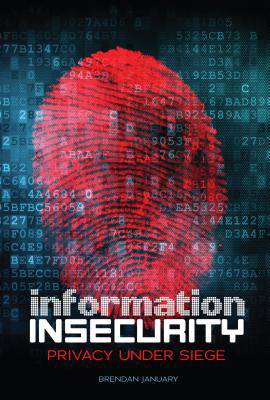
- Afhalen na 1 uur in een winkel met voorraad
- Gratis thuislevering in België vanaf € 30
- Ruim aanbod met 7 miljoen producten
- Afhalen na 1 uur in een winkel met voorraad
- Gratis thuislevering in België vanaf € 30
- Ruim aanbod met 7 miljoen producten
Omschrijving
The Internet gives us information, communication options, shopping opportunities, entertainment, and much more--all at the touch of a fingertip and much of it for free. But in exchange for these benefits, we may be losing a basic right: the right to privacy.
By clicking to accept website user agreements, we often allow companies to track our activities online and to share our data with outside groups. In addition, the police and government agencies can also track people online--and this tracking is sometimes done secretly, without user agreements or search warrants.
Privacy laws and the US Constitution are supposed to protect privacy in the United States, as are laws and conventions in other parts of the world. But judicial and legal systems have not kept pace with technology. And until laws catch up, users enter a legal gray area when they communicate digitally--an arena in which their most private conversations might not be protected from intrusion. Such intrusion can be dangerous: government agencies can use information obtained via digital spying to harass, arrest, or imprison citizens. Other groups can use private digital data to discriminate in banking, housing, and other businesses.
Around the world, critics are sounding the alarm about digital privacy. Many have called for stricter controls on data tracking. What rights do you have when it comes to privacy online? How can you be a smart cyber citizen and protect your personal digital data? These questions are at the heart of the Internet privacy debate.
Specificaties
Betrokkenen
- Auteur(s):
- Uitgeverij:
Inhoud
- Aantal bladzijden:
- 96
- Taal:
- Engels
- Leeftijd:
Eigenschappen
- Productcode (EAN):
- 9781467725170
- Verschijningsdatum:
- 1/08/2015
- Uitvoering:
- Hardcover
- Formaat:
- Bibliotheekbinding
- Afmetingen:
- 160 mm x 236 mm
- Gewicht:
- 362 g

Alleen bij Standaard Boekhandel
Beoordelingen
We publiceren alleen reviews die voldoen aan de voorwaarden voor reviews. Bekijk onze voorwaarden voor reviews.











